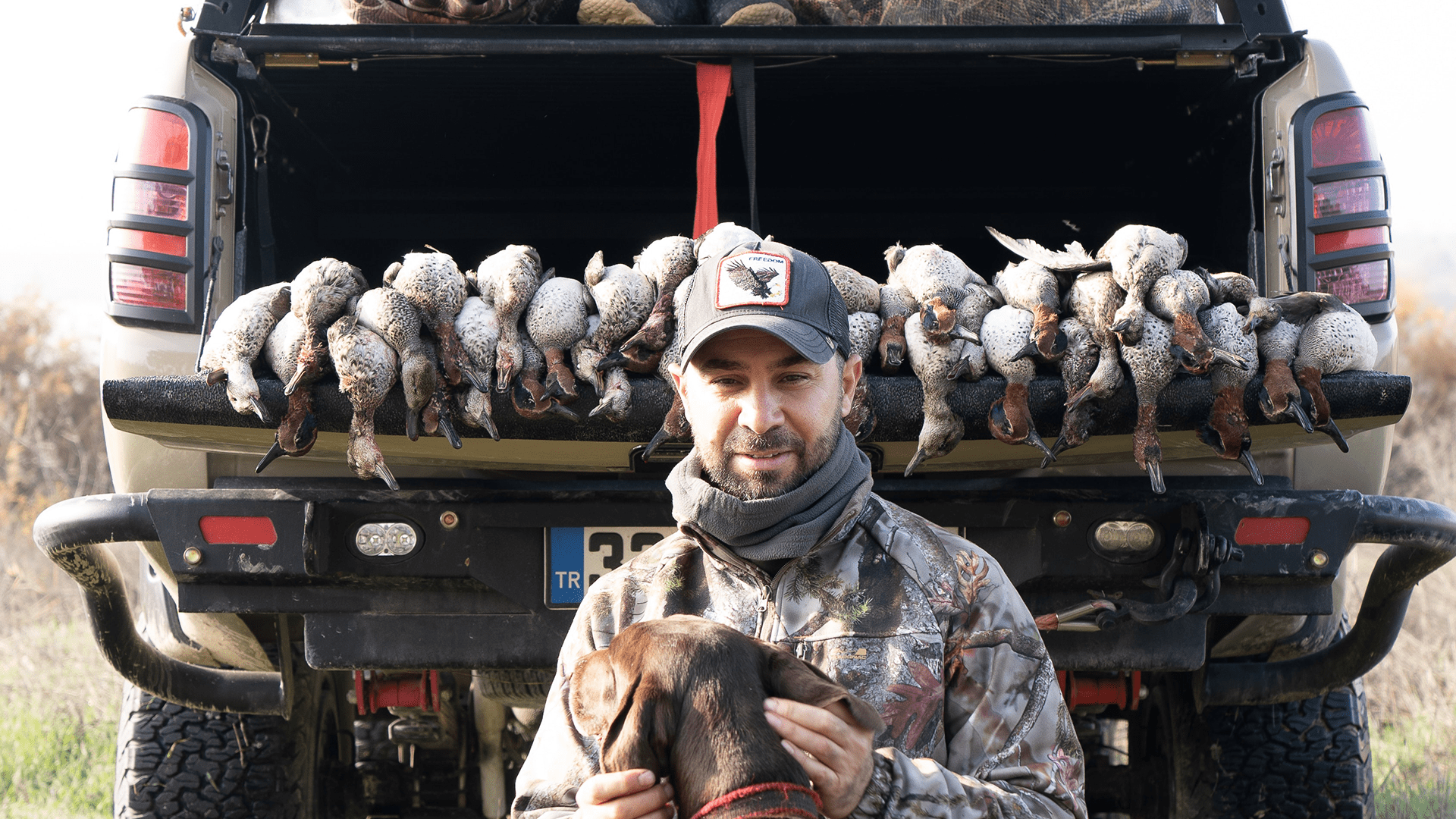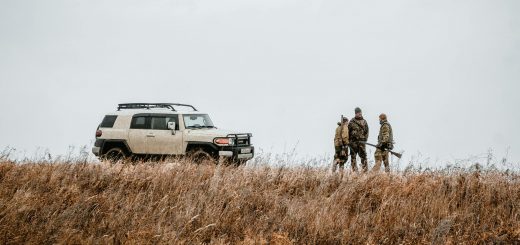Embark on a Wild Adventure Discovering the Best Remote Hunting Spots
In a world where urban landscapes often dominate our lives, the call of the wild presents an irresistible allure. For hunters, outdoor enthusiasts, and digital nomads, finding remote hunting locations offers not just a chance to hunt but to reconnect with nature at its rawest. This growing interest in remote hunting is transforming the way we explore the great outdoors. Whether you’re seeking solitude, a challenge, or simply a unique hunting experience, remote locations offer it all. Join us as we explore what makes a hunting trip unforgettable, and how you can plan one that aligns with your adventurous spirit.
Why Remote Locations Are Gaining Popularity
Venturing off the beaten path can lead to some of the most rewarding hunting experiences. Remote locations are often less crowded, providing a more personal interaction with nature. This seclusion not only enhances the pleasure of the hunt but also allows for a deeper appreciation of the environment. For digital nomads who can work from anywhere, remote hunting trips are a perfect way to blend a love for the outdoors with professional life. With advancements in technology, staying connected while exploring these wild spaces has never been easier.
Another reason for the rising popularity of remote hunting spots is the opportunity to encounter diverse wildlife not found in more frequented areas. From spotting elusive creatures to witnessing natural phenomena, the surprises that await in these isolated regions are endless. Such experiences create unforgettable memories and stories worth sharing. In addition, the sense of accomplishment that comes from successfully navigating and hunting in challenging terrains enhances the thrill of the pursuit.
Yet, the allure goes beyond just the hunt. Remote locations offer a chance to escape the hustle and bustle of daily life, providing a therapeutic retreat into the heart of nature. It’s a chance to unplug, unwind, and soak in the tranquility that only the wilderness can offer. Whether you’re sitting around a campfire under a starlit sky or waking up to the dawn chorus of birds, remote hunting trips provide a wealth of experiences that enrich your connection to the natural world.
Criteria for Choosing the Best Remote Hunting Locations
When selecting a remote hunting location, accessibility is a crucial factor. While the idea is to reach less-traveled destinations, ensuring you can safely get there and back is essential. Consider the distance from the nearest civilization, transportation options, and the terrain you’ll need to traverse. Some spots may require specialized vehicles, hiking, or even boating. Planning how you’ll access these locations is the first step to a successful adventure.
Wildlife population is another key consideration. Research the types of animals that inhabit the area and their abundance during the time of year you plan to visit. Local wildlife agencies and experts can provide valuable insights into animal behavior and migration patterns. This information is vital for ensuring a fruitful hunting trip. Remember, a bountiful wildlife population enhances the overall experience.
Legal considerations should never be overlooked. Different regions have varying laws regarding hunting seasons, permits, and protected species. Familiarize yourself with these regulations to ensure compliance and avoid any legal issues. Ethical hunting practices should always be upheld; respect the land, its inhabitants, and the local communities.
Top Remote Hunting Locations Worldwide
North America’s Abundant Wilderness
North America boasts some of the most varied and rich hunting grounds. Alaska’s vast wilderness offers a chance to hunt big game like moose and caribou amidst stunning snowy landscapes. Its remote nature means fewer hunters, providing a more intimate experience with the wild. The Yukon Territory in Canada is another prime spot, known for its pristine ecosystems and opportunities to hunt grizzly bears and elk.
Venturing further south, the Appalachian Mountains provide a rugged terrain teeming with deer and wild turkeys. The rich biodiversity and challenging landscapes make it a favorite among seasoned hunters. Each of these locations offers something unique, from scenic vistas to diverse wildlife, ensuring an unforgettable hunt.
Exploring Africa’s Untamed Frontiers
Africa’s savannas and bushlands present a hunting adventure like no other. Botswana’s Okavango Delta is a rich tapestry of flora and fauna, offering chances to hunt plains game in an awe-inspiring setting. It’s also home to a variety of endangered species, making conservation efforts an integral part of the experience.
South Africa’s Eastern Cape is famed for its diverse ecosystems and species. Hunters can pursue antelope, warthog, and more, while also enjoying the region’s mesmerizing landscapes. Legal hunting here is closely tied to conservation, ensuring sustainable practices that benefit both wildlife and local communities.
Venturing into Australia’s Outback
Australia’s remote outback offers a unique hunting experience with species like feral pigs, buffalo, and kangaroos. The Northern Territory’s vast landscapes are challenging yet rewarding, with abundant animal populations and breathtaking scenery. This region is not for the faint-hearted but promises a true wilderness adventure.
Western Australia’s Kimberley region combines rugged beauty with rich wildlife. Known for its remoteness, hunters here can track wild cattle and camels, all while soaking in stunning natural features like waterfalls and gorges.
Tips for Planning a Hunting Trip to Remote Locations
Packing Essentials for Remote Hunts
Packing for a remote hunting trip requires careful consideration. Essential gear includes a reliable weapon, ammunition, and necessary permits. Don’t forget clothing suitable for the climate and terrain, sturdy boots, and a good quality backpack. Staying comfortable and prepared for weather changes is crucial.
In addition to hunting gear, pack survival essentials such as a first aid kit, navigation tools (like a GPS and maps), and a reliable communication device. These items are your lifeline in remote areas, ensuring you stay safe and connected. Remember, when it comes to packing, less is more, but never skimp on safety.
Advice on Navigation and Safety
Navigating remote locations can be challenging, so having a solid plan is vital. Familiarize yourself with the terrain using maps and GPS devices. Before setting out, inform someone about your itinerary and expected return time. Local guides can also provide invaluable knowledge about the area and its conditions.
Safety should always be a priority. Keep an eye on the weather forecast, and be prepared for rapid changes. Understanding basic survival skills, such as building a fire or finding water, could be lifesaving. When hunting, adhere to ethical practices, ensuring respect for the wildlife and environment.
The Importance of Ethical Hunting Practices
Ethical hunting is not just about following laws; it’s about respecting the natural world. Always hunt sustainably, taking only what you need and leaving no trace behind. Practice fair chase, ensuring a sporting chance for the animal, and make clean, humane kills.
Engage with local communities and contribute to conservation efforts. Many remote areas rely on responsible hunting as a means to support conservation and local economies. By hunting ethically, you help preserve these precious environments for future generations to enjoy.
Personal Experiences and Testimonials
Every hunter has a story to tell, and personal experiences from remote hunting trips provide valuable insights. John, a seasoned hunter from Montana, recalls his most memorable trip to the Alaskan wilderness, where he spent ten days braving the elements to track moose. Despite the challenges, the sense of achievement and connection with nature made it unforgettable.
Jessica, a digital nomad and outdoor enthusiast, shares her experience hunting in South Africa’s Eastern Cape. She describes the thrill of the hunt, the beauty of the landscape, and the satisfaction of knowing she contributed to conservation efforts. Her story highlights the multifaceted benefits of remote hunting.
These firsthand accounts inspire others to seek their own adventures. Sharing stories and tips creates a sense of community among hunters, fostering connections and learning opportunities. Whether you’re a novice or an experienced hunter, hearing about others’ journeys can motivate you to pursue your own.




